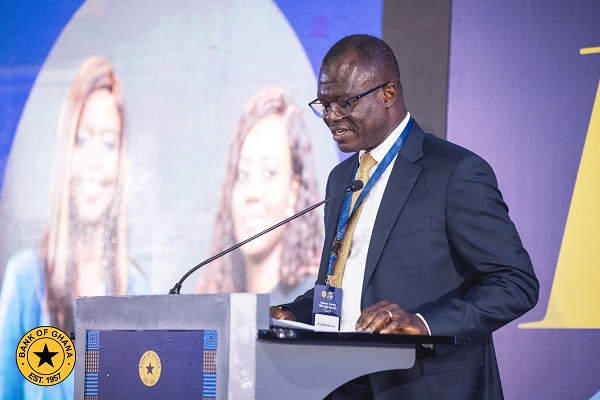Nigeria's tax reforms are promising but who will hold the (new) NRS accountable?, By Edidiong Bassey

The tax reform bills represent a major opportunity to reshape Nigeria’s fiscal future. If implemented faithfully, they could usher in a more efficient, credible, and responsive tax system. The creation of the Tax Ombudsman in particular is a bold step toward institutional accountability. But success will depend not on legal texts alone, but on the strength of leadership, the quality of enforcement, and the willingness to evaluate and adapt.
When I learnt that the Tinubu administration was inaugurating a Presidential Committee on Fiscal Policy and Tax Reforms, I was cautiously optimistic. As one who has spent nearly a decade studying tax reform in Nigeria, I’ve seen too many promising initiatives stall or collapse under poor design, lack of coordination, or political interference.
Take, for instance, the FIRS’ protracted struggle with implementing unified digital tax systems. Over the years, the agency has experimented with multiple platforms, often without interoperability. Or consider the challenge of aligning tax administration with Nigeria’s fragmented identity infrastructure – BVN, NIN, voter IDs, and others – which has undermined reliable taxpayer tracking. These examples illustrate a broader truth: technical solutions cannot succeed without robust, accountable institutions supporting them.
So, when the committee, led by Taiwo Oyedele, the Africa Tax Leader at PwC, was announced and its mandate laid out, I was hopeful. After months of robust stakeholder engagement and legislative scrutiny, four significant tax reform bills are now nearing presidential assent:
This is no small feat. But amidst the public discourse on rates, exemptions, and thresholds, we must urgently ask: how will these reforms be implemented and who will hold Nigeria’s tax authorities accountable?
Power Is Still Over-Concentrated
My doctoral research, which included nearly a year speaking with stakeholders of the Federal Inland Revenue Service (FIRS), demonstrates that one of the institution’s core vulnerabilities is the excessive centralisation of power. Traditionally, the same individual has served as both the Executive Chairman and the Chief Executive, thereby concentrating authority and blurring the lines of accountability.
The Senate passed bill attempts to separate the powers by assigning the President as Chair of the Board and introducing an Executive Vice Chairman (EVC), subject to Senate confirmation, to head the day-to-day operations. This is different from the original draft bill, which mostly restates the current dual arrangement of the Executive Chairman as the Chief Executive. Regardless of which model has been adopted by the conference committee, neither does much in practice to decentralise power, as the president will not be involved in daily matters. A more effective model would have created a truly independent administrative head, perhaps appointed by the Board from within the service.
One glaring omission in the bills is the failure to codify the FIRS’ cost of collection. While many assume it operates on a fixed share, the reality is that its funding is subject to yearly appropriations by the National Assembly. This has created space for political pressure and fiscal uncertainty… By contrast, the Nigeria Customs Service (NCS) enjoys a 7 per cent cost of collection enshrined in law. There is no clear reason why the FIRS, Nigeria’s premier tax institution, should not have similar legal protections.
Even more concerning are reports suggesting that executive directors might be political appointments. While the current bill provides for eight coordinating directors to be appointed by the Board, any deviation would deeply compromise institutional independence and professionalism.
Vague Removal Clauses Invite Abuse
The bills allow for the removal of FIRS leaders “in the public interest or in the interest of the Service”, which is a broad and subjective clause. As Nigeria’s experience with Central Bank governors shows, even institutions that appear structurally protected can be undermined when legal ambiguities are exploited.
Instead of relying on vague criteria, leadership should be assessed and, if necessary, removed on the basis of objective, results-based metrics. The bills could also introduce safeguards like overlapping tenures to preserve institutional memory, and penalties for failing to meet governance benchmarks (e.g., holding four board meetings per year or convening meetings upon request by board members, as required by the bill).
Financial Autonomy: Still Not Guaranteed
One glaring omission in the bills is the failure to codify the FIRS’ cost of collection. While many assume it operates on a fixed share, the reality is that its funding is subject to yearly appropriations by the National Assembly. This has created space for political pressure and fiscal uncertainty.
By contrast, the Nigeria Customs Service (NCS) enjoys a 7 per cent cost of collection enshrined in law. There is no clear reason why the FIRS, Nigeria’s premier tax institution, should not have similar legal protections. Flexibility is important, but so is stability and independence.
Operational Interference Remains Unchecked
Another weak spot is the persistent informal interference in recruitment, promotions, and interdepartmental postings. While formal exams exist, the process is opaque, with staff often receiving scores without access to their scripts. This limits transparency and opens the door to patronage.
Although not everything can be legislated, the FIRS can take proactive steps: outsourcing recruitment, conducting independent departmental audits, and providing transparent feedback at key stages in hiring. These reforms would protect meritocracy and boost confidence within and outside the Service.
Beyond legal reforms, one critical element is still missing: an independent evaluation framework. Reforms should be assessed annually using agreed performance metrics, both internally by the FIRS and externally by independent research bodies or civil society organisations. These external “shadow reports” would serve as complementary reviews of official data, promoting transparency, encouraging public debate, and helping policymakers identify unintended consequences or emerging challenges.
The Most Promising Innovation: The Tax Ombudsman
Perhaps the most forward-looking reform is the creation of the Office of the Tax Ombudsman, an independent oversight body with a bold mandate. The new bill empowers the office to, among other things:
These functions are critical, especially in a context where taxpayers feel disempowered and the system lacks trust. But one flaw remains: the Ombudsman is expected to report to the Minister of Finance. This creates a conflict of interest, especially when the office must investigate or criticise government policy.
For true independence, the Ombudsman should report directly to the President and the National Assembly. Just as importantly, its leadership should be drawn from institutions that have earned credibility for impartiality and technical expertise, such as the Tax Appeal Tribunal. Appointing a generic tax consultant with no adjudicatory experience would be a lost opportunity.
Evaluation: The Missing Pillar of Reform
Beyond legal reforms, one critical element is still missing: an independent evaluation framework. Reforms should be assessed annually using agreed performance metrics, both internally by the FIRS and externally by independent research bodies or civil society organisations. These external “shadow reports” would serve as complementary reviews of official data, promoting transparency, encouraging public debate, and helping policymakers identify unintended consequences or emerging challenges. Support for independent research activities should be encouraged and promoted.
Conclusion
The tax reform bills represent a major opportunity to reshape Nigeria’s fiscal future. If implemented faithfully, they could usher in a more efficient, credible, and responsive tax system. The creation of the Tax Ombudsman in particular is a bold step toward institutional accountability. But success will depend not on legal texts alone, but on the strength of leadership, the quality of enforcement, and the willingness to evaluate and adapt. The best laws in the world cannot preempt every future challenge. What they can do is build institutions capable of evolving and holding power to account.
That’s the real reform Nigeria needs, and the one we must continue to fight for.
Edidiong Bassey, a lecturer at Cardiff University, had his doctoral degree focused on tax reform and public administration in Nigeria.











